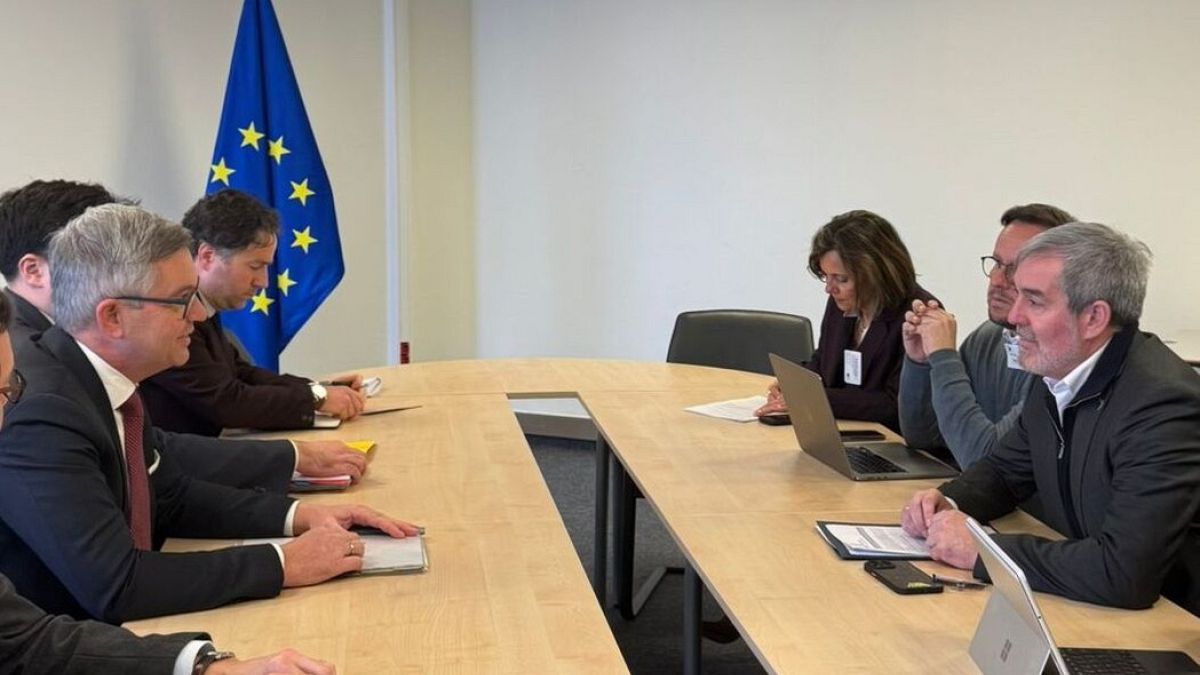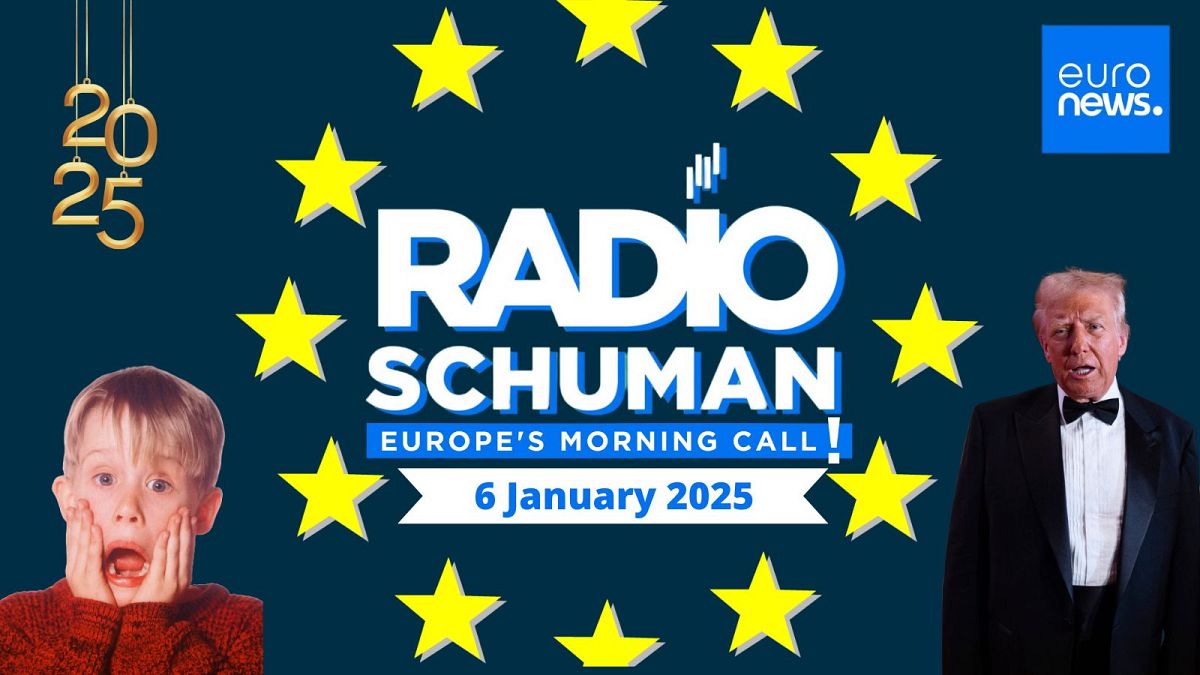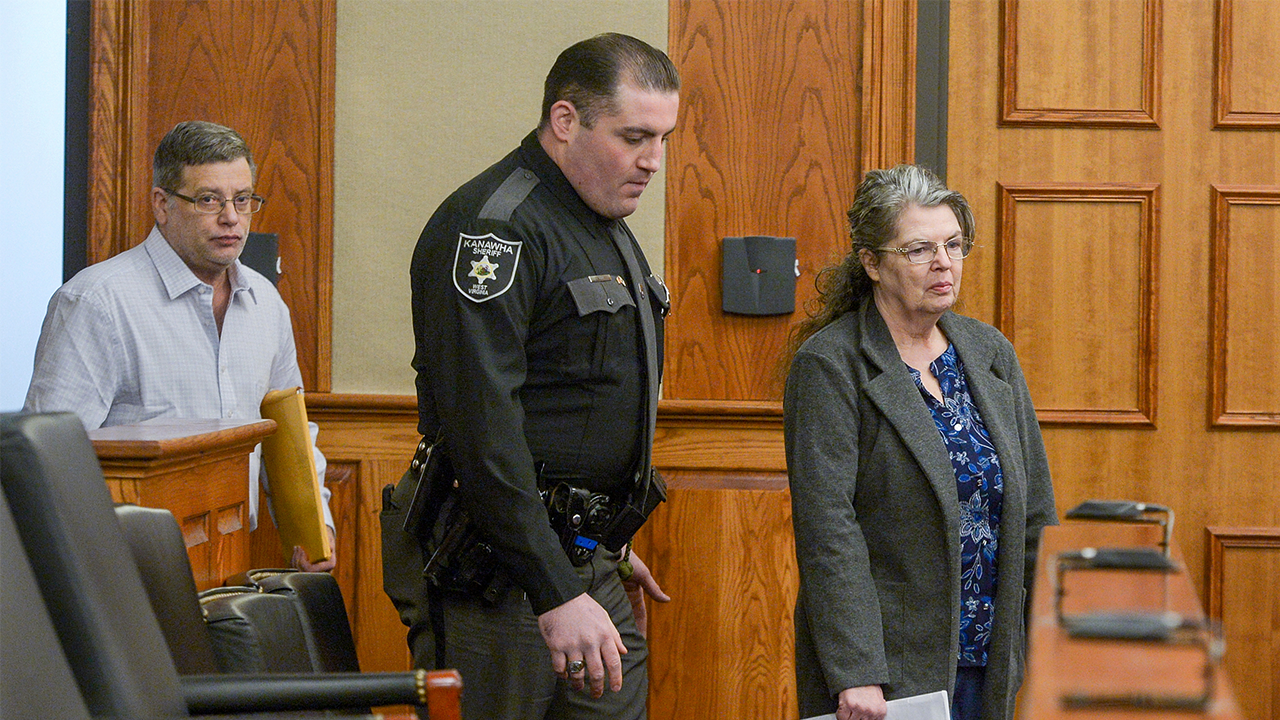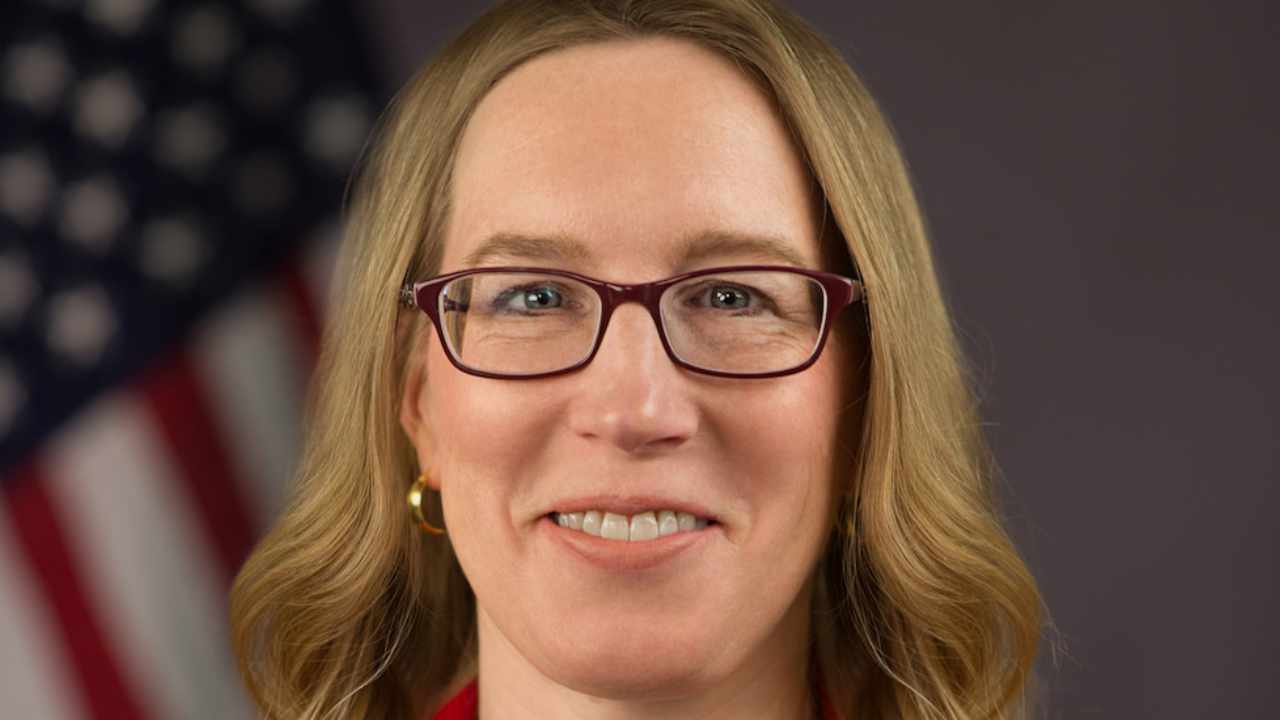World
Spain’s amnesty law sparks heated debate in European Parliament
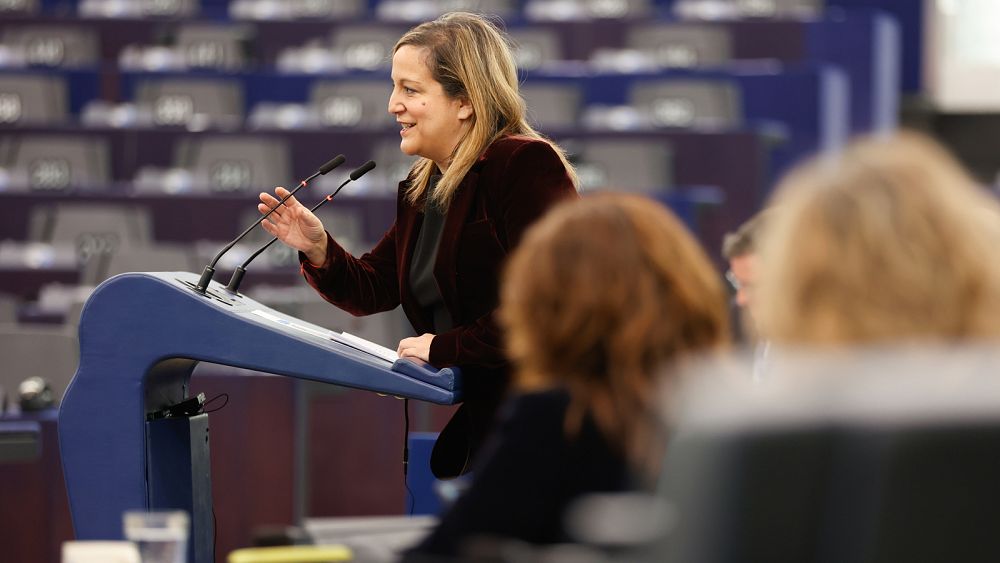
Emotions ran high in the Strasbourg hemicycle on Wednesday as EU lawmakers clashed over Spain’s controversial amnesty law, part of a political deal with Catalan separatists to make Pedro Sánchez prime minister.
The debate, convened by the right-leaning European People Party (EPP) saw right-wing lawmakers accuse allies of Sánchez, a socialist, of sacrificing the rule of law for political gains while socialist MEPs defended the amnesty bill as a key step in Spain’s reconciliation with Catalan separatists.
Earlier this month, Catalan separatist party Junts per Catalunya (JxCat) – led by the exiled Carles Puigdemont, also a member of the European Parliament – offered seven of its votes in the Spanish parliament to back a Sánchez-led government in exchange for a controversial amnesty for Catalan politicians and activists who participated in a failed attempt at secession from Spain in 2017.
The law has sparked outrage among the Spanish opposition, who accuse Sánchez of cosying up to separatists and flouting the rule of law. Fierce protests have taken place in Spain’s capital Madrid for the past twenty days.
Speaking to Euronews ahead of the debate, EPP president Manfred Weber said Sánchez had put his “personal egoism” in front of national interests by signing a “legally unthinkable” text.
Weber claimed people in Spain are “no longer equal before the law,” and accused Sánchez of allowing “corruption, violence and terrorism” to go unpunished.
“The socialists and the left have lost all credibility to defend the rule of law in Europe,” he added.
Close Sánchez ally Iratxe García, president of the Socialists and Democrats in the European Parliament, accused Weber of lying by claiming crimes of terrorism would be absolved under the plans, citing Article 2c of the draft amnesty bill which explicitly says acts of terrorism would be excluded from the law’s application.
The law could however exonerate an unconfirmed number of crimes including embezzlement, disobedience and maladministration.
“Mr Weber, lying is not ok, and you have lied,” she said to the jeers of the conservatives. “There is no greater attack on the rule of law than your alliance with the extreme right.”
“The main problem of the Partido Popular (PP) and Vox,” she went on, referring to the main political forces on the Spanish right, “is that they are incapable of understanding Spain. They cannot understand that the greatness of Spain lies in its diversity and plurality.”
Sources from Spain’s socialist party (PSOE) told Euronews that the right had “failed in its attempt to get the European Commission to oppose the proposed amnesty law.”
Also in Strasbourg on Wednesday was the leader of Spanish far-right party Vox, Santiago Abascal, who has drawn harsh criticism over recent days for encouraging protesters to disobey police orders during demonstrations.
“We hope the Spanish parliament will be asked to provide explanations and that the Commission will act with the same diligence as in the case of Poland and Hungary,” he told reporters.
All eyes on the Commission
EU justice commissioner Didier Reynders, whose team is currently scrutinising the draft amnesty law to ensure compliance with the bloc’s rule of law rulebook, also intervened during the debate, but refrained from disclosing details of his team’s preliminary assessment.
He reiterated the Commission had received complaints “by a large number of citizens and stakeholders” expressing concerns over whether the law and the “special committees of the parliament” it foresees comply with the EU’s fundamental values.
“We will carry out our analysis carefully, independently, and objectively to determine compliance with EU law,” Reynders affirmed.
Sánchez’s newly-appointed justice minister Félix Bolaños is expected to meet Reynders and values and transparency commissioner Věra Jourová in Brussels next week to provide clarifications on the amnesty bill, after Reynders addressed a letter to Spanish ministers earlier this month requesting more information.
The bloc can sanction member states for rule of law breaches under Article 7 of the EU treaties and is currently withholding funds from both Hungary and Poland for democratic backsliding.
PP’s institutional vice-secretary Esteban González Pons accused Sánchez of endangering European funds earlier on Wednesday, including Spain’s staggering €163 billion allocation of the bloc’s flagship ‘Next Generation’ post-Covid recovery funds.
But the Commission has so far refrained from disclosing its assessment of the proposed law, and no concerns regarding the erosion of the rule of law have been raised.
Lawfare under scrutiny
One of the most controversial aspects of the political deal struck between JxCat and the socialists is the reference to the concept of ‘lawfare’, or the strategic use of the law as an instrument to target political opponents.
JxCat’s leader Carles Puigdemont wants Spain to introduce parliamentary commissions to investigate whether its courts had been unnecessarily heavy-handed in sentences made against the separatists in order to persecute pro-independence figures.
Legal experts have voiced concerns that this could significantly undermine the independence of the judiciary and the separation of powers, as enshrined in Spain’s constitution.
But although no reference to lawfare is made in the text of the amnesty law, Reynders told the parliament that his team is also investigating the proposal to establish “parliamentary commissions.”
He also called on Spain to implement the urgent judicial reforms made recommended as part of the Commission’s annual rule of law report published in July.

World
Rupert Murdoch's UK tabloids offer a rare apology in a legal settlement with Prince Harry
LONDON (AP) — Rupert Murdoch’s U.K. tabloids made a rare apology to Prince Harry in settling his privacy invasion lawsuit and will pay him a substantial sum, his lawyer said Wednesday.
Harry’s lawyer David Sherborne read a statement in court saying News Group offers a “full and unequivocal apology to the Duke of Sussex” for years of unlawful intrusion.
The bombshell announcement in London’s High Court came as the Duke of Sussex’s trial was about to start against the publishers of The Sun and the now-defunct News of the World for unlawfully snooping on him over decades.
Harry, 40, the younger son of King Charles III, and one other man were the only two remaining claimants out of more than 1,300 others who had settled lawsuits against News Group Newspapers over allegations their phones were hacked and investigators unlawfully intruded in their lives.
In all the cases that have been brought against the publisher since a widespread phone hacking scandal forced Murdoch to close News of the World in 2011, Harry’s case got the closest to trial.
Murdoch shut down the News of the World after the Guardian reported that the tabloid’s reporters had hacked the phone of Milly Dowler, a murdered 13-year-old schoolgirl, while police were searching for her in 2002.
As the case was about to start Tuesday morning, his lawyer asked for a one-hour recess, then got a longer adjournment and finally asked to have the rest of the day as it became clear a settlement was in the works.
The case was one of three lawsuits Harry has brought accusing British tabloids of violating his privacy by eavesdropping on phone messages or using private investigators to unlawfully help them score scoops.
His case against the publisher of the Daily Mirror ended in victory when the judge ruled that phone hacking was “widespread and habitual” at the newspaper and its sister publications.
During that trial in 2023, Harry became the first senior member of the royal family to testify in court since the late 19th century, putting him at odds with the monarchy’s desire to keep its problems out of view.
His feud with the press dates back to his youth, when the tabloids took glee in reporting on everything from his injuries to his girlfriends to dabbling with drugs.
But his fury with the tabloids goes much deeper.
He blames the media for the death of his mother, Princess Diana, who was killed in a car crash in 1997 while being chased by paparazzi in Paris. He also blames them for the persistent attacks on his wife, actor Meghan Markle, that led them to leave royal life and flee to the U.S. in 2020.
The litigation has been a source of friction in his family, Harry said in the documentary “Tabloids On Trial.”
He revealed in court papers that his father opposed his lawsuit. He also said his older brother William, Prince of Wales and heir to the throne, had settled a private complaint against News Group that his lawyer has said was worth over 1 million pounds ($1.23 million).
“I’m doing this for my reasons,” Harry told the documentary makers, though he said he wished his family had joined him.
Harry was originally one among dozens of claimants, including actor Hugh Grant, who alleged that News Group journalists and investigators they hired violated their privacy between 1994 and 2016 by intercepting voicemails, tapping phones, bugging cars and using deception to access confidential information.
Of the original group, Harry and Tom Watson, a former Labour Party member of Parliament, were the holdouts headed to trial.
News Group had denied the allegations.
NGN had issued an unreserved apology to victims of voicemail interception by the News of the World and said it settled more than 1,300 claims. The Sun has never accepted liability.
The outcome in the News Group case raises questions about how Harry’s third case — against the publisher of the Daily Mail — will proceed. That trial is scheduled next year.
World
Putin, Xi vow to ‘deepen’ alliance hours after Trump re-enters the White House
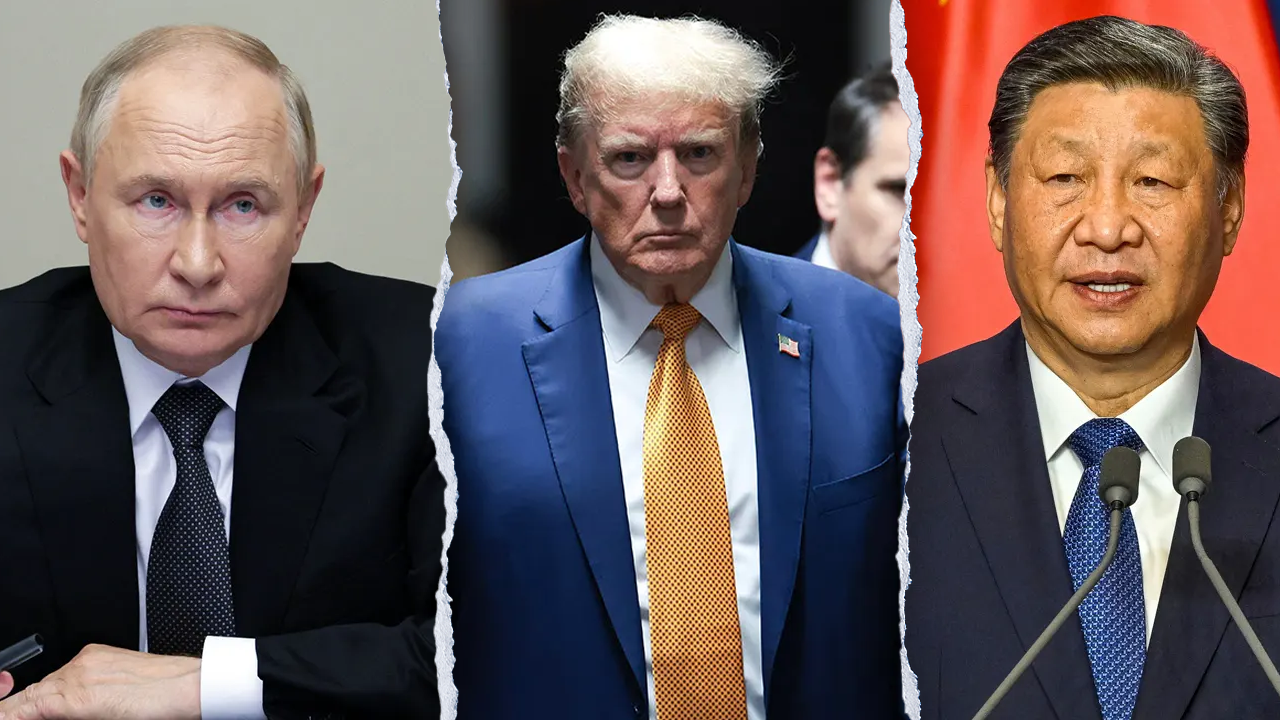
Chinese President Xi Jinping and Russian President Vladimir Putin on Tuesday pledged to “deepen strategic coordination” in a video call less than a day after President Donald Trump re-entered the White House.
A transcript of the call posted to the Kremlin’s website showed that both Putin and Xi referred to one another as “friends” and vowed to back one another’s strategic interests, no matter the “current global situation.”
“This year, I am ready, together with you, to elevate Chinese-Russian relations to a new level, to counter external uncertainties by preserving stability and resilience of Chinese-Russian relations,” Xi said while addressing Putin.
Russia’s President Vladimir Putin holds a video call with Chinese President Xi Jinping at the Novo-Ogaryovo state residence outside Moscow on Jan. 21, 2025. (Gavriil Grigorov/Pool/AFP via Getty Images)
TRUMP WANTS TO VISIT CHINA AGAIN AFTER HE TAKES OFFICE: REPORT
The pair both vowed to back the U.N.-centered international system ahead of the 80th anniversary this year, and to defend the post-World War II global order – a nod to Putin’s pursuit to reclaim Ukraine in what many have argued is an attempt to re-establish the Soviet Union.
Xi also told Putin about a call he had with Trump on Friday regarding TikTok, trade and Taiwan, according to a report by Reuters.
The Chinese and Russian leaders also reportedly “indicated a willingness to build relations with the United States on a mutually beneficial, mutually respectful basis,” Kremlin foreign policy aide Yuri Ushakov told reporters, adding this will happen “if the Trump team really shows interest in this.”
“It was also noted from our side that we are ready for dialogue with the new U.S. administration on the Ukrainian conflict,” he added.

Vladimir Putin and Xi Jinping attend a reception during the BRICS summit in Kazan, Russia, Oct. 23, 2024. (Alexander Zemlianichenko/Pool via Reuters)
RUSSIA, IRAN TO SEAL PARTNERSHIP TREATY DAYS BEFORE TRUMP TAKES OFFICE
Neither readouts of the call issued by China or Russia directly mentioned Ukraine, though Russia highlighted that Beijing has remained a major supporter of Moscow’s economy as it is the largest consumer of Russian energy resources – a major earner for Putin’s war effort.
“Five years ago, we launched the Power of Siberia gas pipeline together, and today, Russia has become the leading supplier of natural gas to China,” the Kremlin said in a readout.
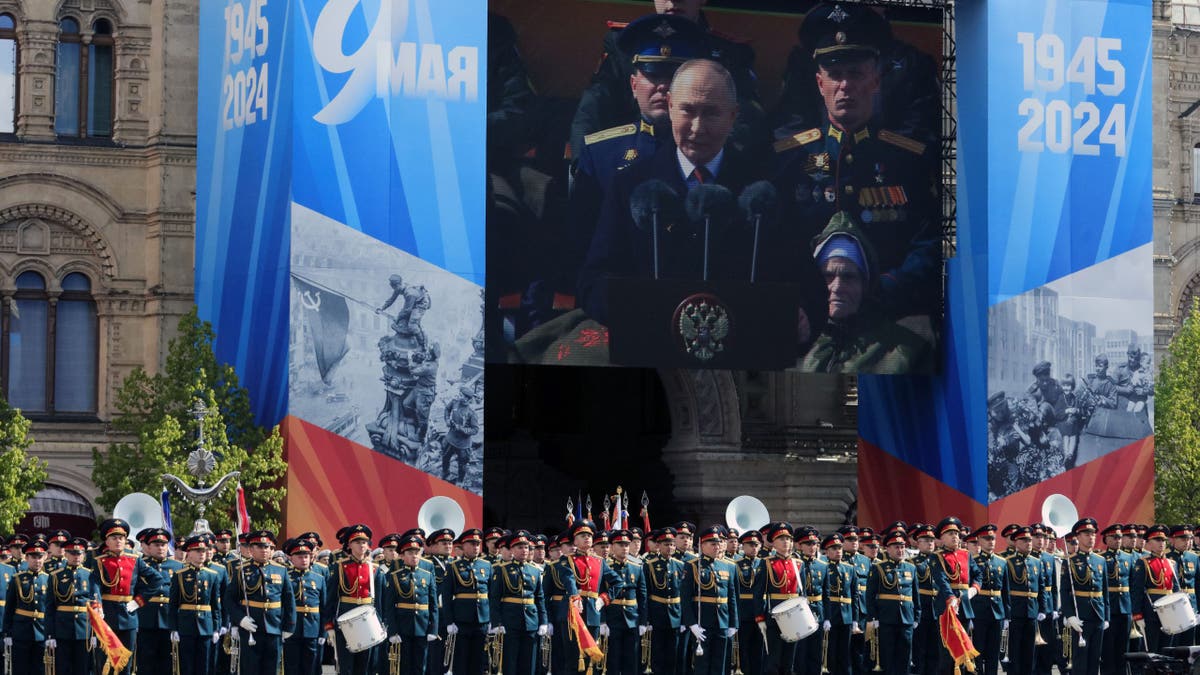
Russian President Vladimir Putin delivers a speech during a Victory Day military parade marking the 79th anniversary of the victory over Nazi Germany in World War II in Moscow. (Tian Bing/China News Service/VCG via Getty Images)
Though according to Beijing, Moscow did directly address China’s interests in Taiwan and, according to the readout issued by the Chinese Communist Party, “Russia firmly supports Taiwan as an integral part of China’s territory and firmly opposes any form of ‘Taiwan independence.’”
“I believe that the past year was very good for us,” Putin said. “It can be said confidently that our foreign policy ties and Russia and China’s joint efforts objectively play a major stabilizing role in international affairs.”
World
With Trump in power, Europe may buy LNG, planes, and cut car tariffs

Bernd Lange, the president of the European Parliament’s trade committee, told Euronews how Europe could negotiate with US president Donald Trump if tariffs hit on European goods.
Today Radio Schuman speaks with Bernd Lange, chairman of the European Parliament’s Trade Committee, who noted that Europe still has room to respond to Trump’s policies.
In his inauguration speech, Donald Trump provided little detail regarding his earlier threats to impose tariffs on the European Union. His previously stated demand that Europe face tariffs unless it increased purchases of US oil and gas was already well-known, with many European politicians asserting they are prepared to respond proportionately.
Potential measures the EU could apply include increasing LNG imports and reducing car tariffs, the MEP says. Lange also stressed that the EU’s future trade agreements could be shaped in reaction to shifts in US trade policy.
Radio Schuman also has a quick look at the European Parliament’s agenda today and at the most depressed country in Europe.
Radio Schuman is hosted and produced by Maïa de la Baume, with journalist and production assistant Eleonora Vasques, audio editing by David Brodheim. Music by Alexandre Jas.
-
/cdn.vox-cdn.com/uploads/chorus_asset/file/25826211/lorealcellbioprint.jpg)
/cdn.vox-cdn.com/uploads/chorus_asset/file/25826211/lorealcellbioprint.jpg) Technology1 week ago
Technology1 week agoL’Oréal’s new skincare gadget told me I should try retinol
-
/cdn.vox-cdn.com/uploads/chorus_asset/file/25832751/2192581677.jpg)
/cdn.vox-cdn.com/uploads/chorus_asset/file/25832751/2192581677.jpg) Technology7 days ago
Technology7 days agoSuper Bowl LIX will stream for free on Tubi
-

 Business1 week ago
Business1 week agoWhy TikTok Users Are Downloading ‘Red Note,’ the Chinese App
-
/cdn.vox-cdn.com/uploads/chorus_asset/file/25835602/Switch_DonkeyKongCountryReturnsHD_scrn_19.png)
/cdn.vox-cdn.com/uploads/chorus_asset/file/25835602/Switch_DonkeyKongCountryReturnsHD_scrn_19.png) Technology5 days ago
Technology5 days agoNintendo omits original Donkey Kong Country Returns team from the remaster’s credits
-

 Culture4 days ago
Culture4 days agoAmerican men can’t win Olympic cross-country skiing medals — or can they?
-
/cdn.vox-cdn.com/uploads/chorus_asset/file/24774110/STK156_Instagram_threads_1.jpg)
/cdn.vox-cdn.com/uploads/chorus_asset/file/24774110/STK156_Instagram_threads_1.jpg) Technology1 week ago
Technology1 week agoMeta is already working on Community Notes for Threads
-

 Culture2 days ago
Culture2 days agoBook Review: ‘Somewhere Toward Freedom,’ by Bennett Parten
-

 Politics5 days ago
Politics5 days agoU.S. Reveals Once-Secret Support for Ukraine’s Drone Industry
